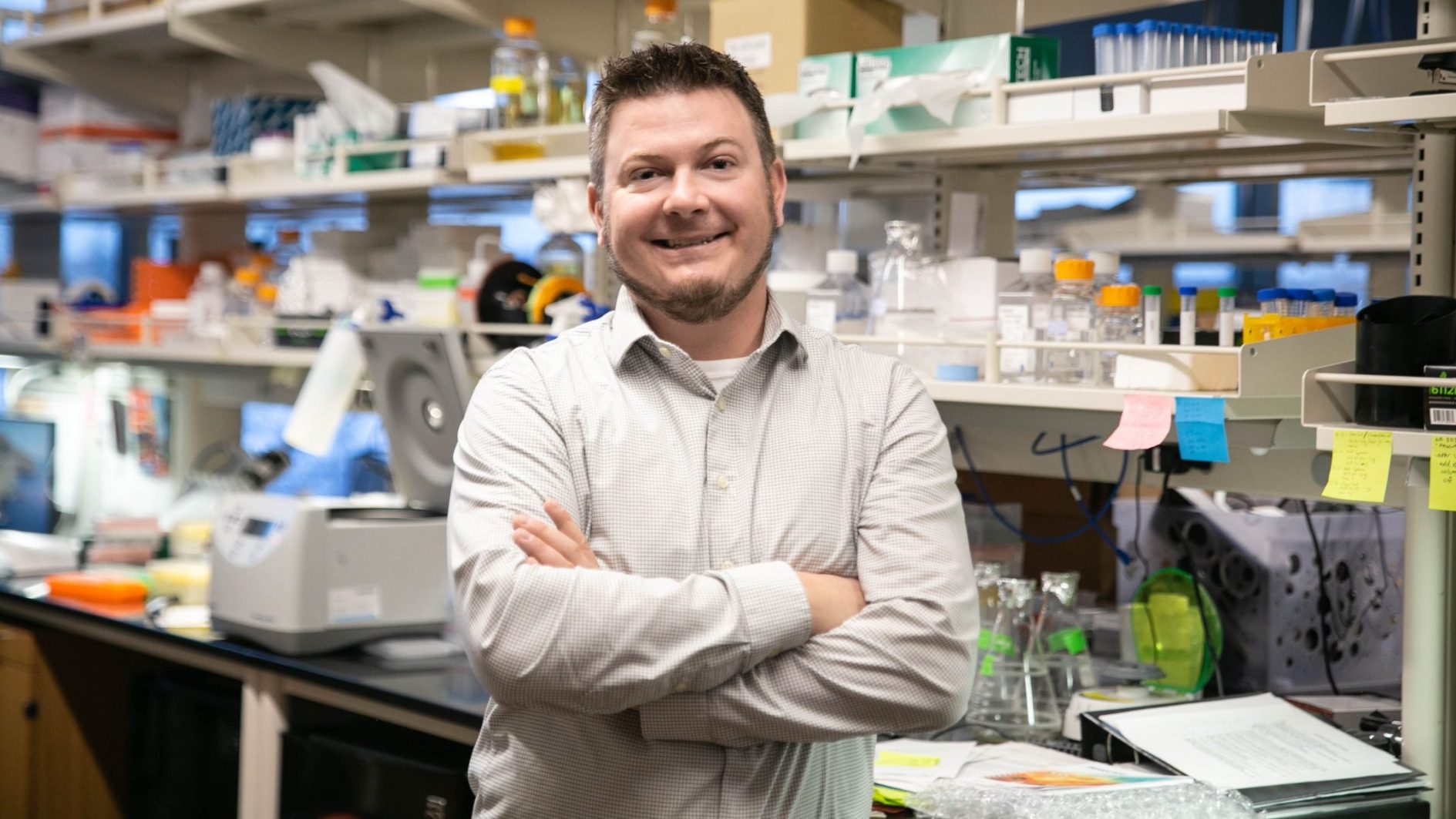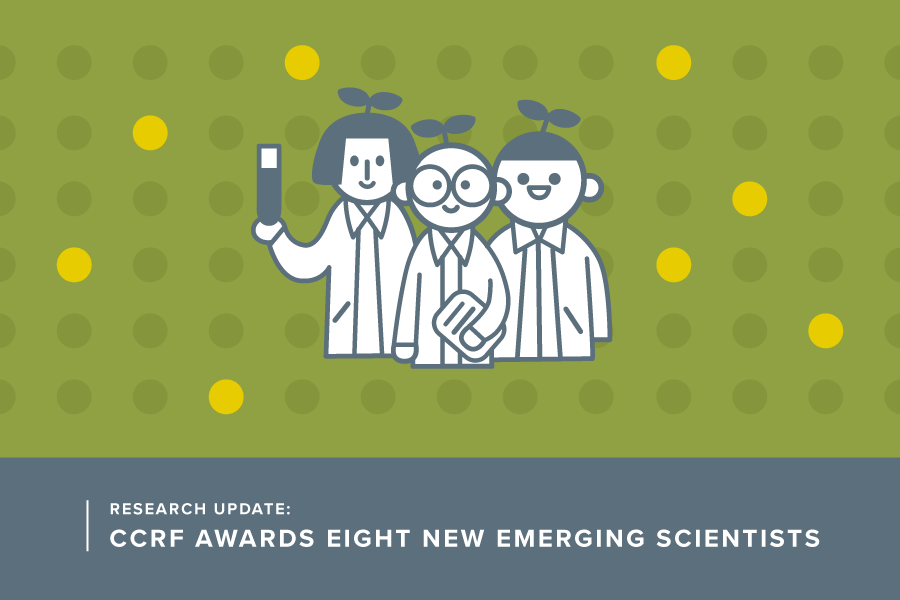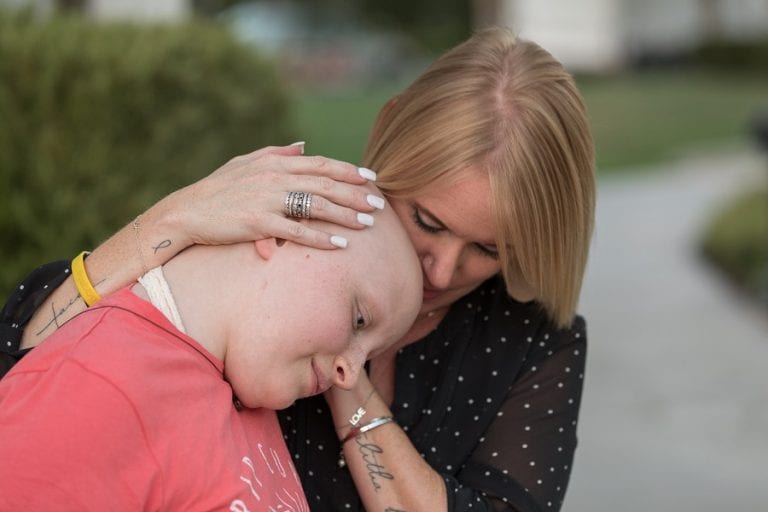Through a selective granting process, Children's Cancer Research Fund (CCRF) recently awarded these eight promising scientists the Emerging Scientist Award, each worth $100,000, to pursue their research:
Erin Crotty, MD, Seattle Children’s Hospital, will use her grant to further investigate a brain cancer test she and her team have already developed. This test detects leftover, microscopic brain cancer cells that cause relapse, and it could help them personalize treatment so kids can survive longer.
Carol Fries Simpson, MD, University of Rochester, will study the genetic make-up of B-lymphoblastic lymphoma, an under-researched childhood cancer, to identify a targeted treatment approach for children battling the disease.
Lillian Guenther, MD, St. Jude, is exploring a specific gene called SMARCAL1 that plays a key role in the development of metastatic osteosarcoma, a lethal bone cancer. Hopefully, this will lead to a new therapeutic option for patients with this devastating disease.
Emily Heikamp, MD, PhD, MSc, Dana-Farber Cancer Institute, will research the mechanisms that drive NUP98-r acute myeloid leukemia. Her lab already identified a potential targeted therapy for this subtype, which she plans to combine with other therapies to increase its effectiveness.
Jemma Larson, PhD, University of Minnesota aims to understand the deadly impact of acute Graft-versus-Host Disease (aGVHD) in the gastrointestinal (GI) tract. (aGVHD) is a sometimes-fatal bodily response that can occur after stem cell transplants. Her work is critical for the development of safe and effective targeted therapies for children.
Margot Lazow, MD, The Research Institute at Nationwide Children’s Hospital, plans to conduct a clinical trial to assess the safety and efficacy of a promising therapy called Lutathera in kids with deadly brain and spine tumors.
Andrew Marley, PhD, University of Minnesota, will study the potential link between maternal obesity and acute lymphoblastic leukemia incidence in children. Findings could help doctors create interventions, screen and identify children who may have pre-leukemia, counsel parents and provide targets for future immunotherapies.
Jia-Ray Yu, PhD, Virginia Tech, plans to screen a series of drug-like compounds that could be used to treat acute myeloid leukemia and diffuse midline glioma. He expects to generate the basis for future targeted therapies where they don’t currently exist.
Why Children's Cancer Research Fund supports new scientists
At CCRF, we believe scientists early in their career have inventive approaches that can enliven the childhood cancer research field.

“We would’ve never gotten [an R01 grant] without CCRF helping mature the project. The Emerging Scientist Award got the ball rolling, and we got it to snowball into a bigger project.” - Beau Webber, PhD, a 2017 Emerging Scientist Award recipient, is on his way to a 5-year, $3.3 million R01 grant from the National Institutes of Health to support his Ewing sarcoma research.
One of the most back-breaking parts of a researcher’s career is right at the beginning. It’s when they’re trying to set up their labs and garner funding for their newly investigated ideas.
Scientists entering the field typically don’t have the breadth or quantity of research that could make them stand out against those who are more experienced, making it difficult to earn large grants from the government and other institutions. We’ve made it part of our mission to give them the funding to further explore their research so that kids can get treatments informed by fresh, forward-thinking perspectives. With our Emerging Scientist Award, their ideas turn into mature projects, and they can vie for larger grants.
Your donation supports Emerging Scientists
By donating to Children’s Cancer Research Fund, you’re giving emerging scientists the support they need to put their great ideas into practice. Learn more about CCRF's commitment to funding researchers early in their careers.



